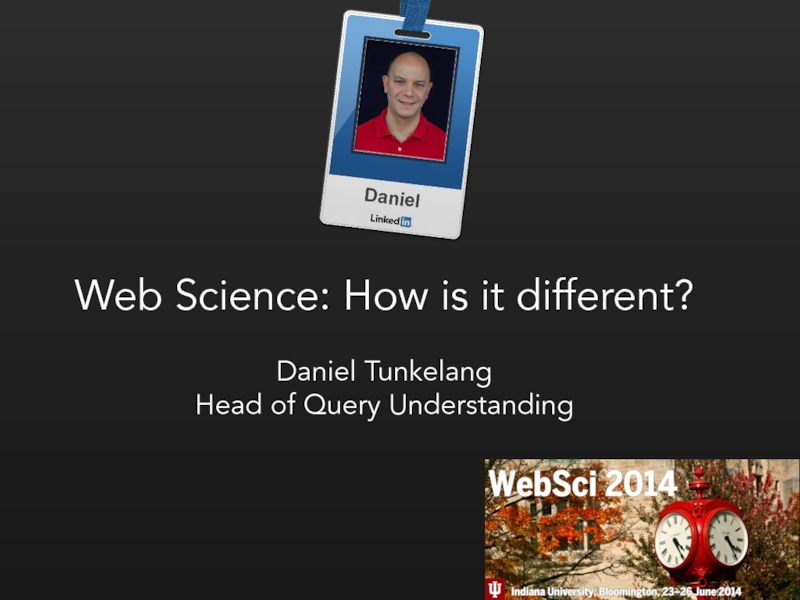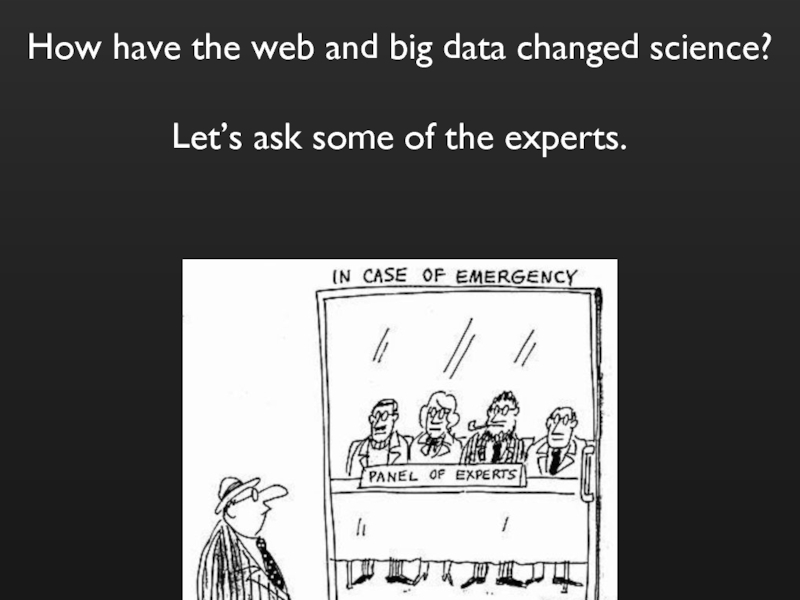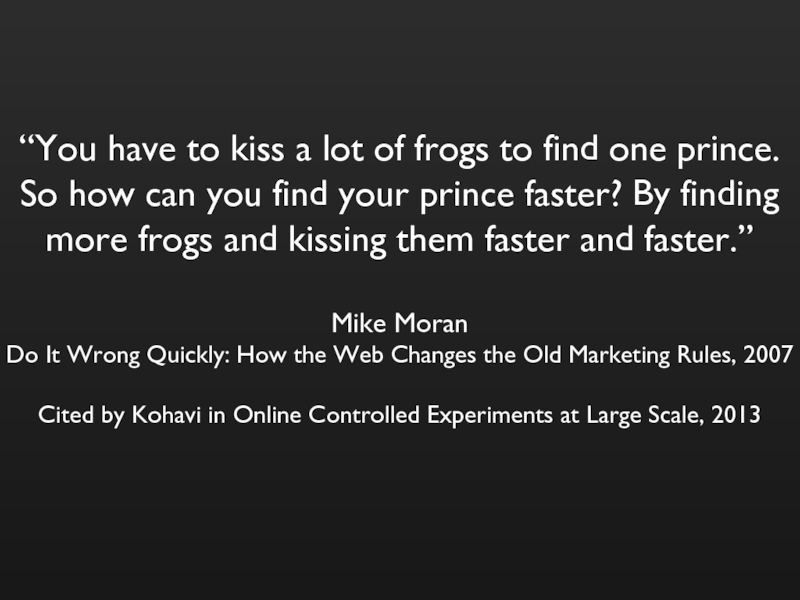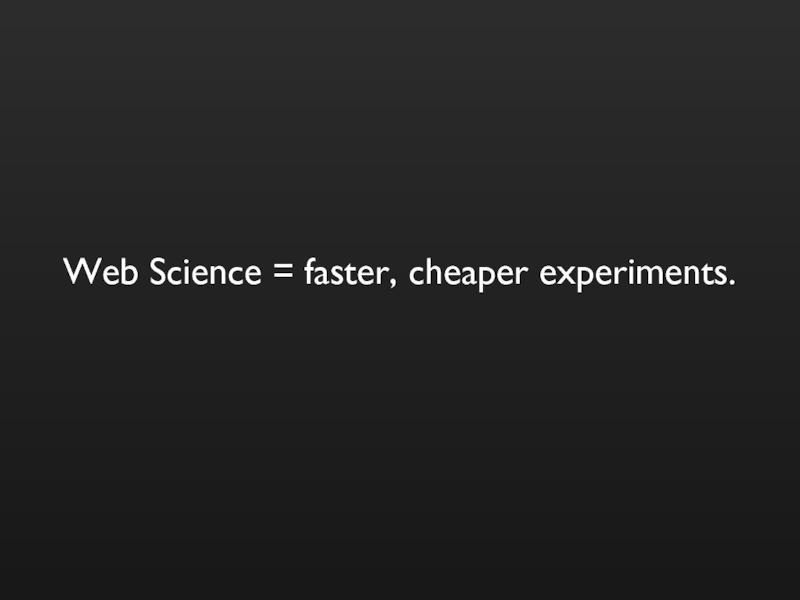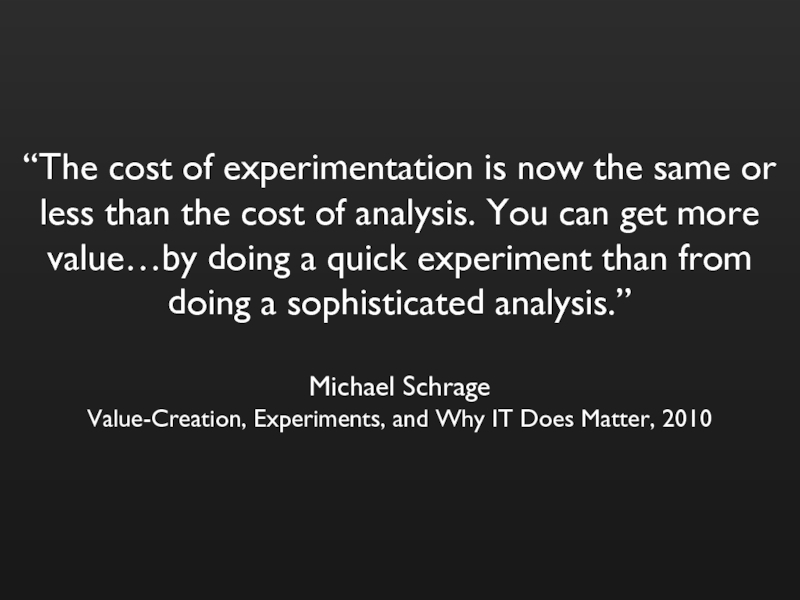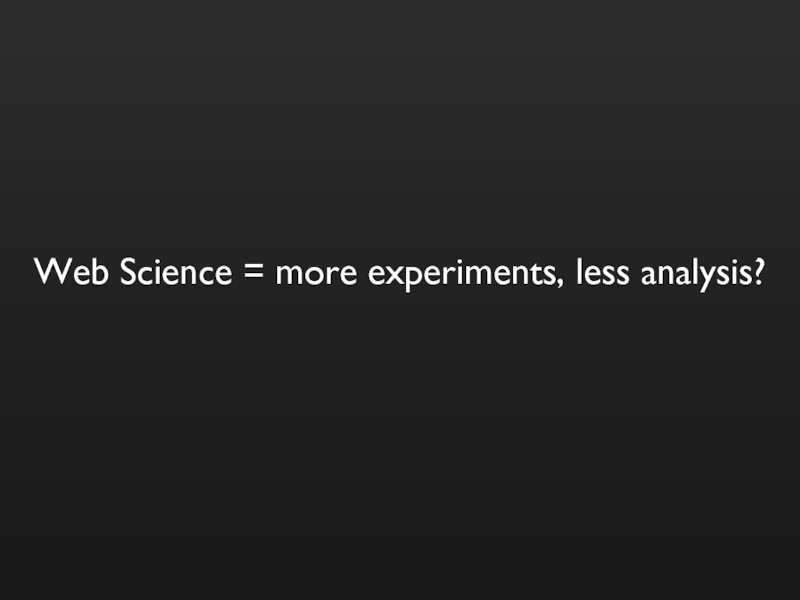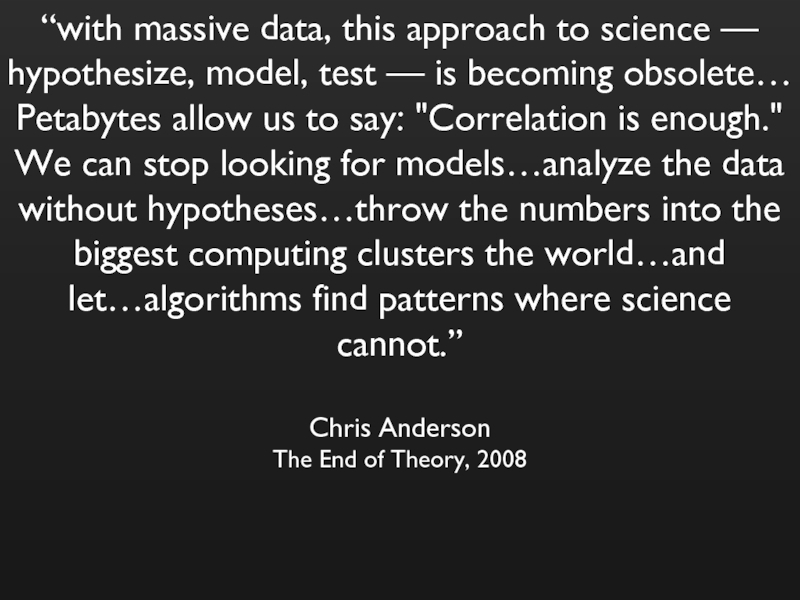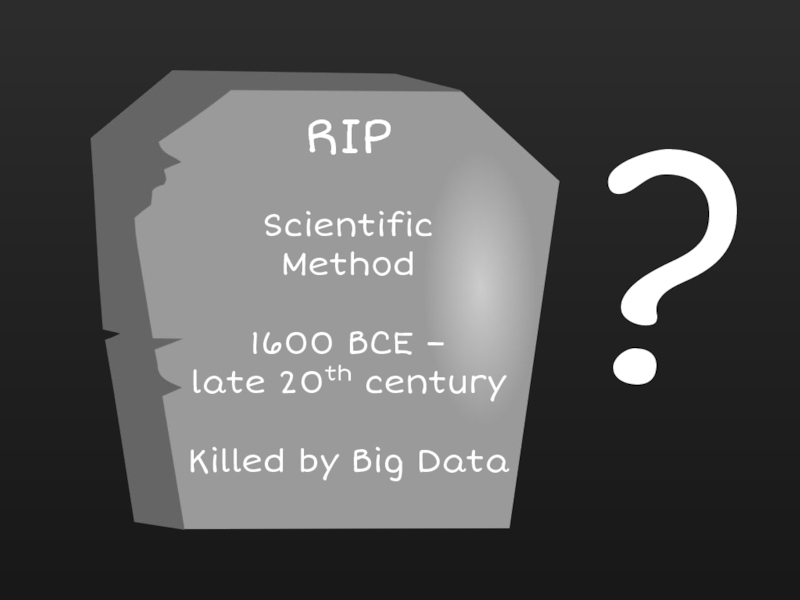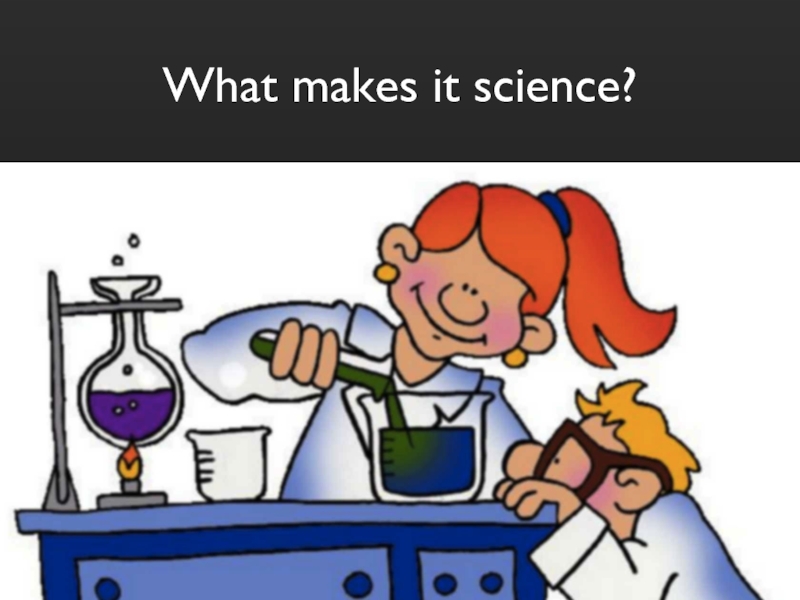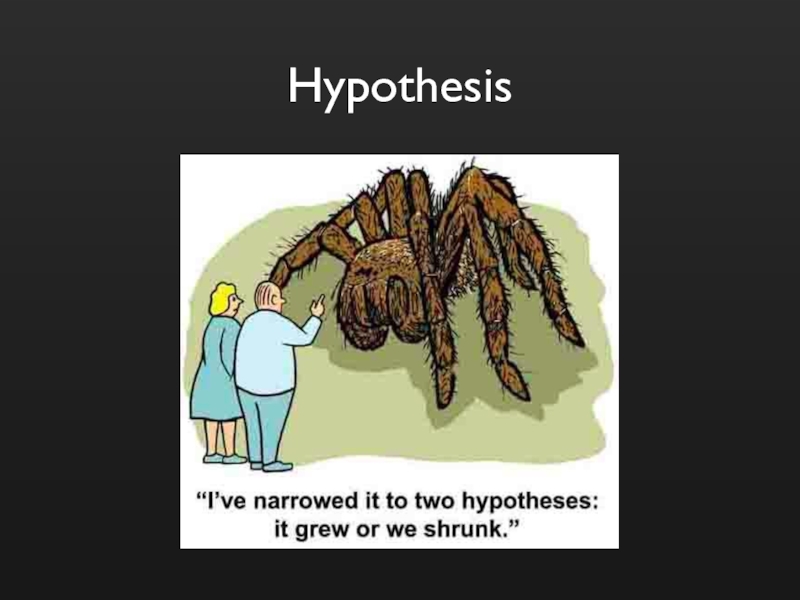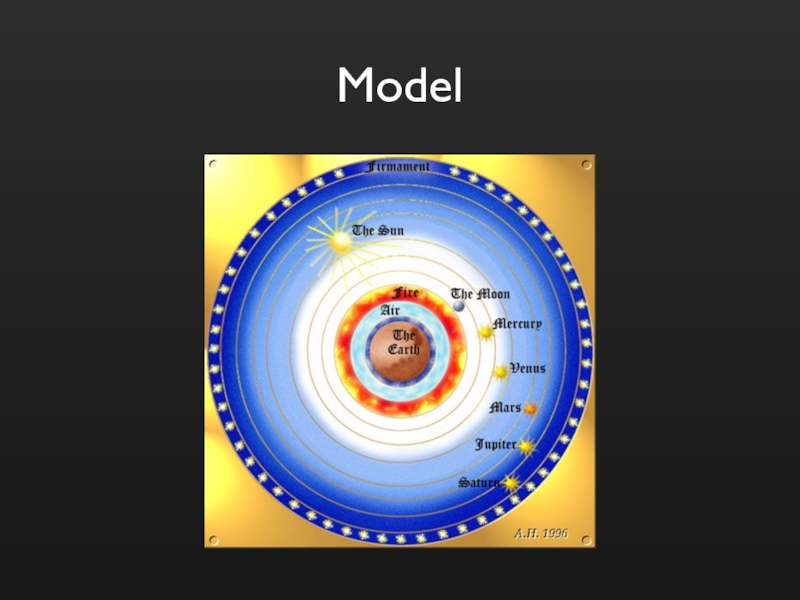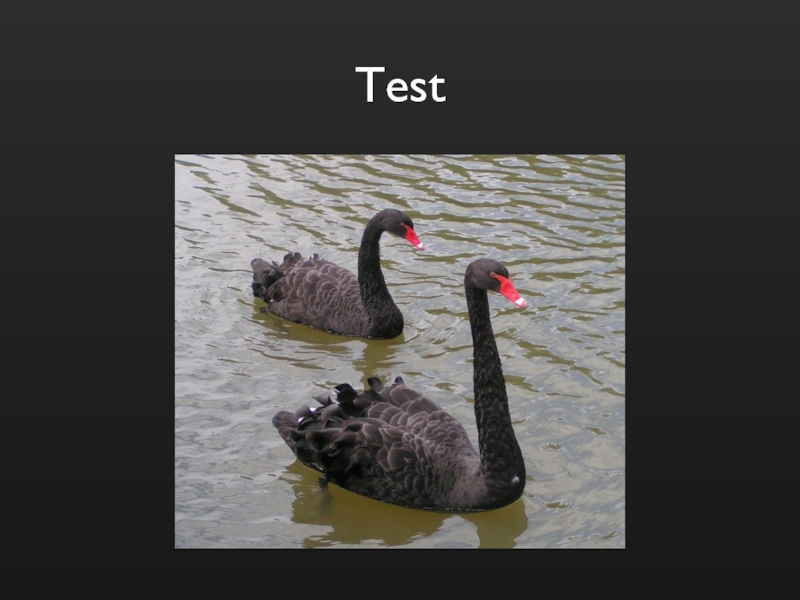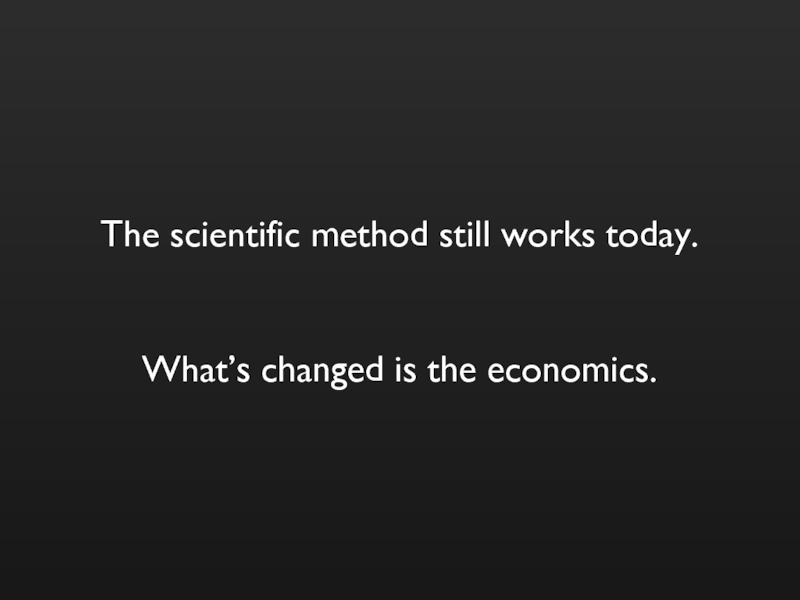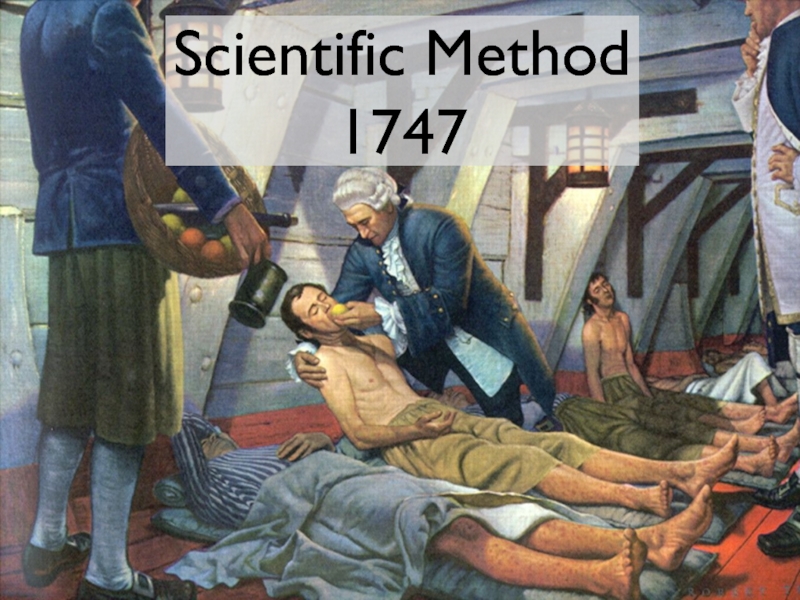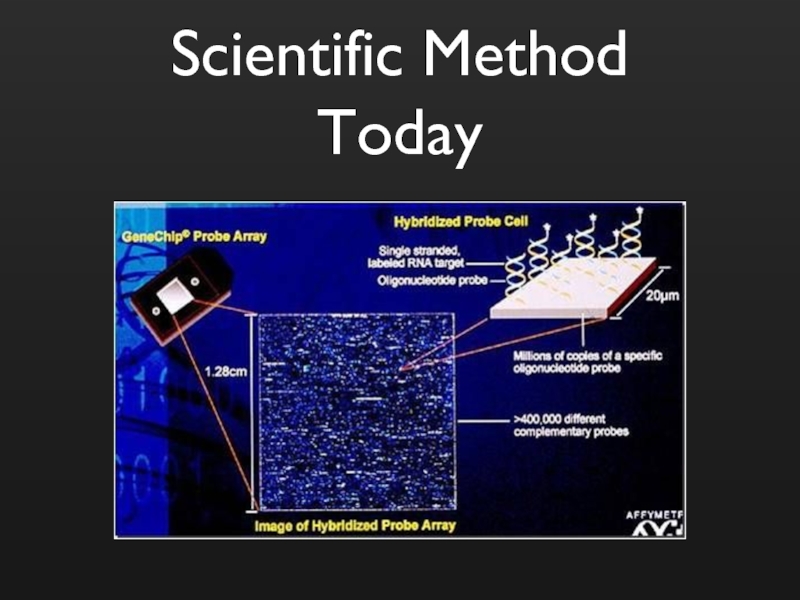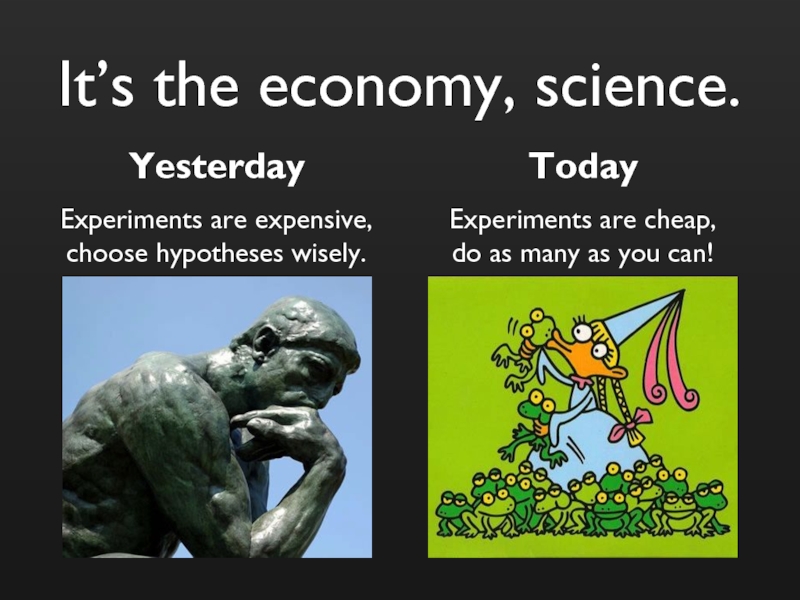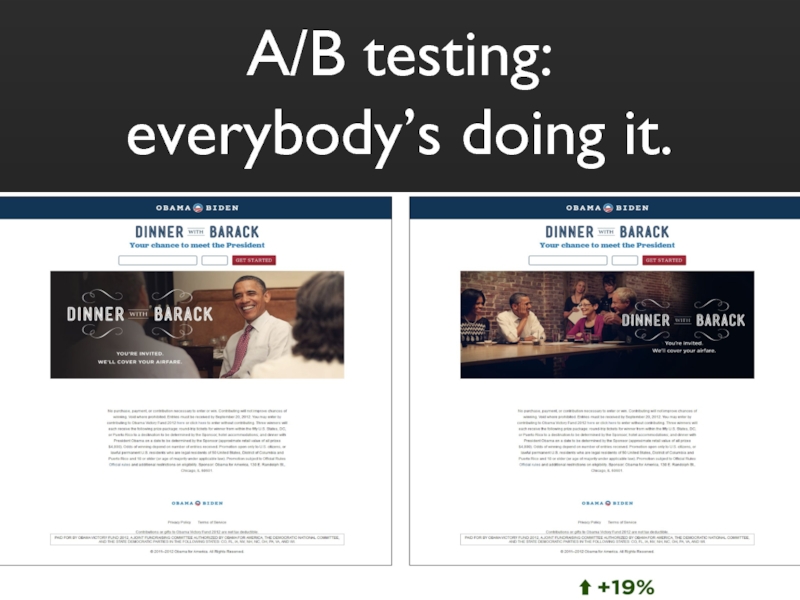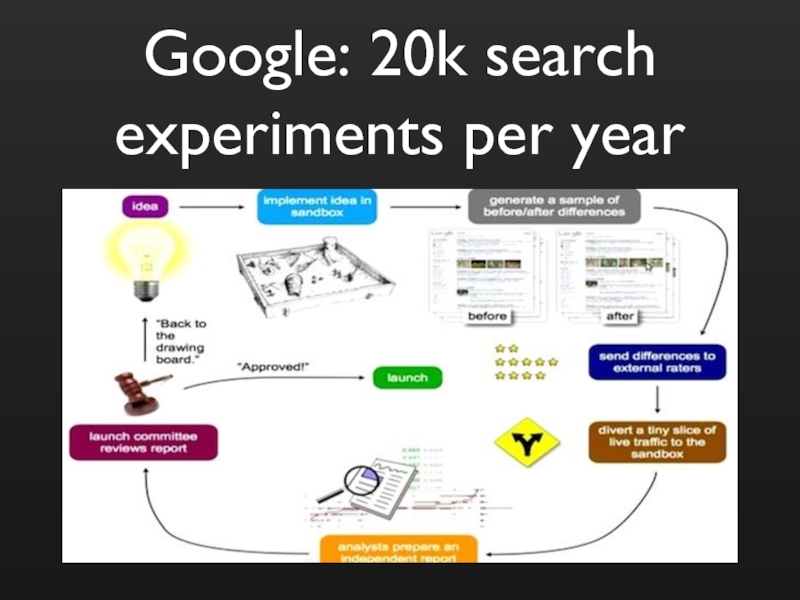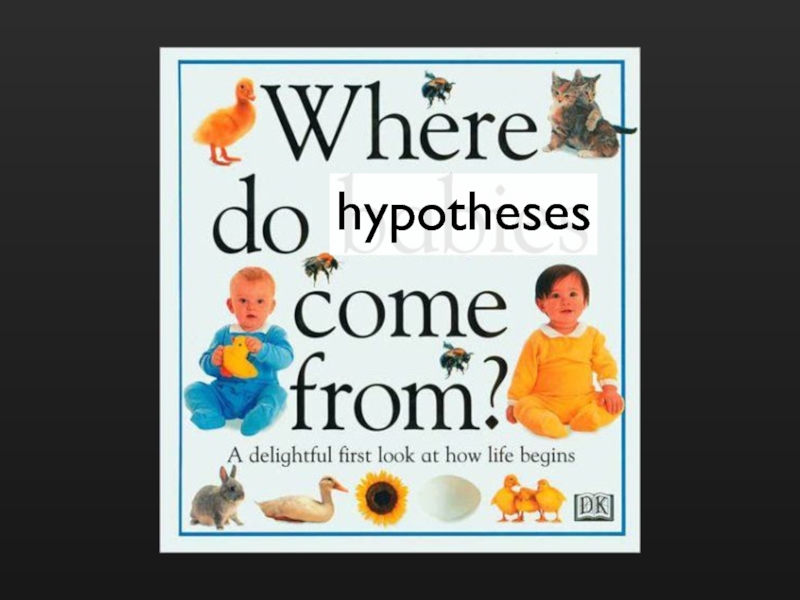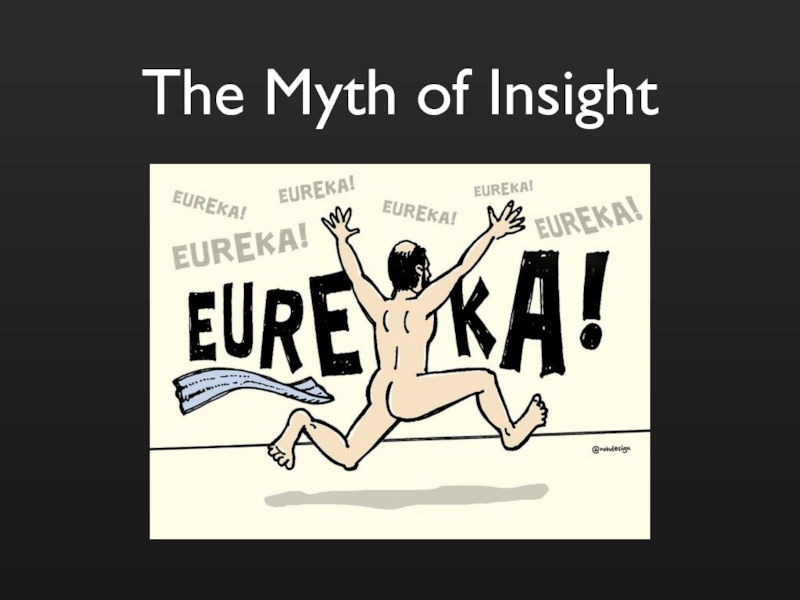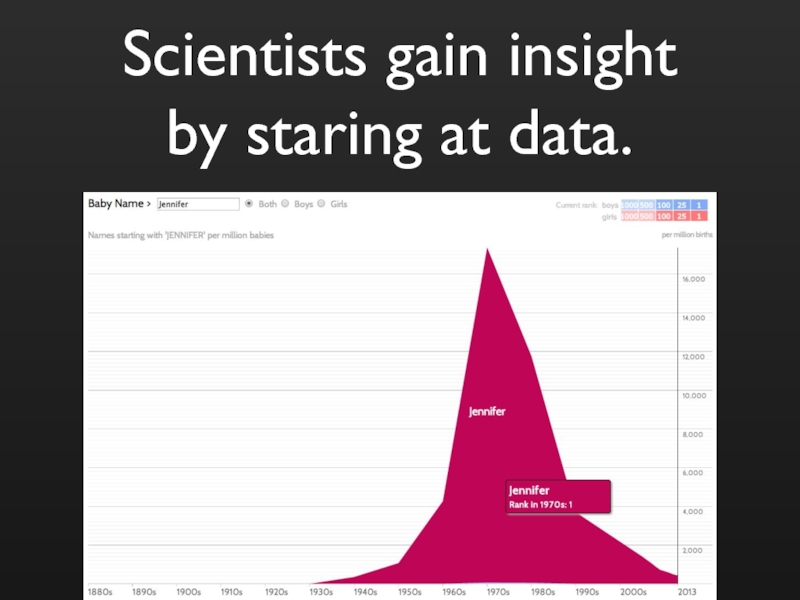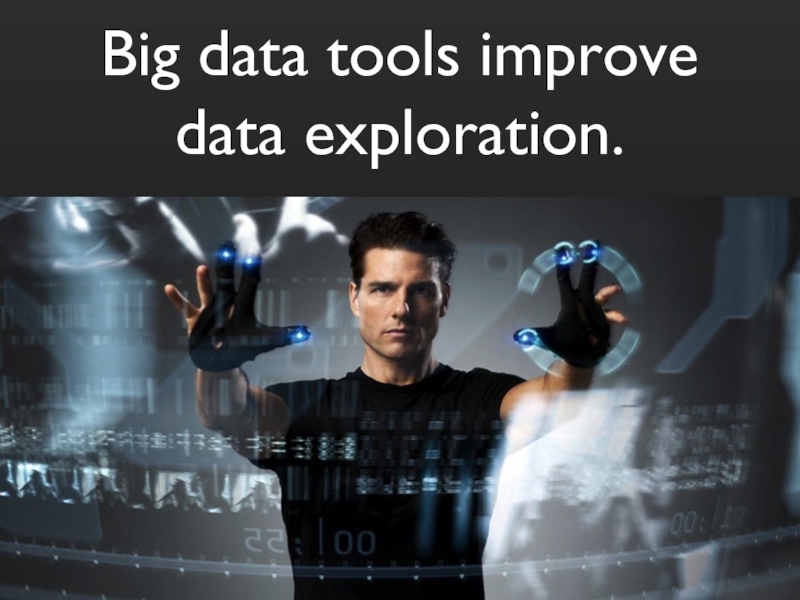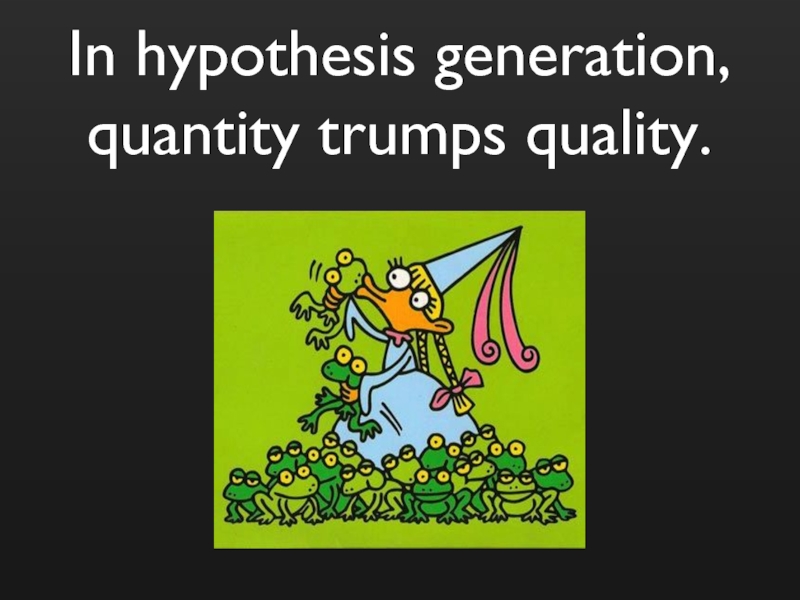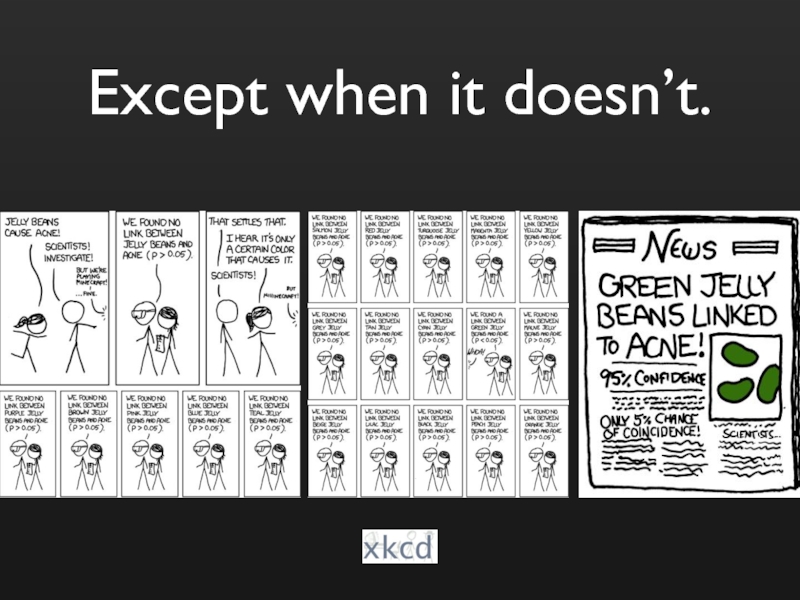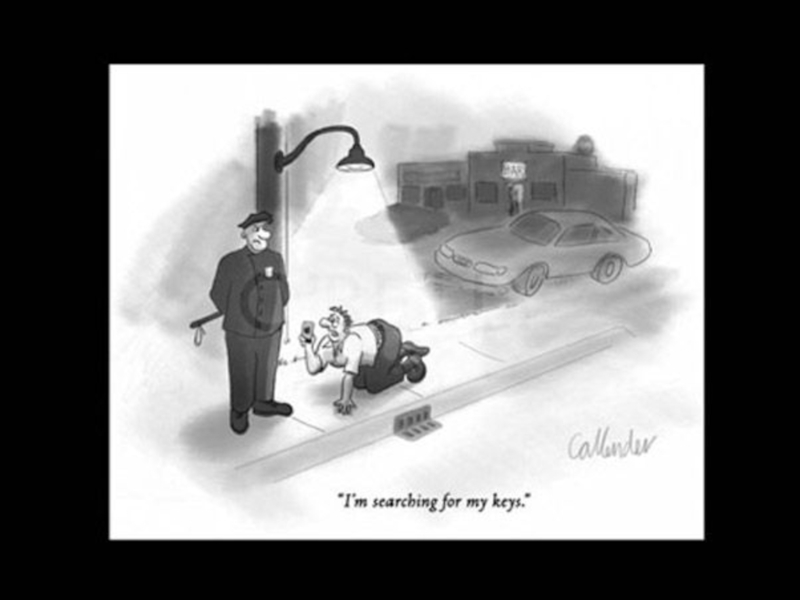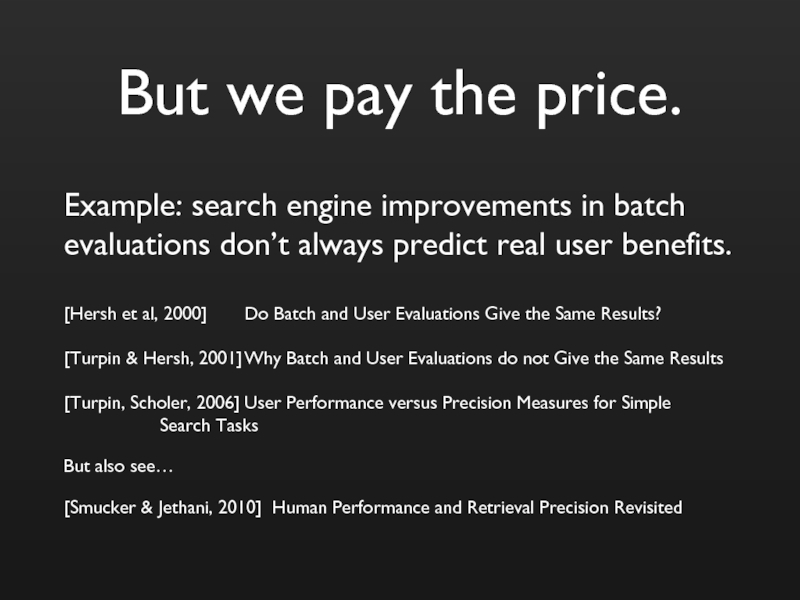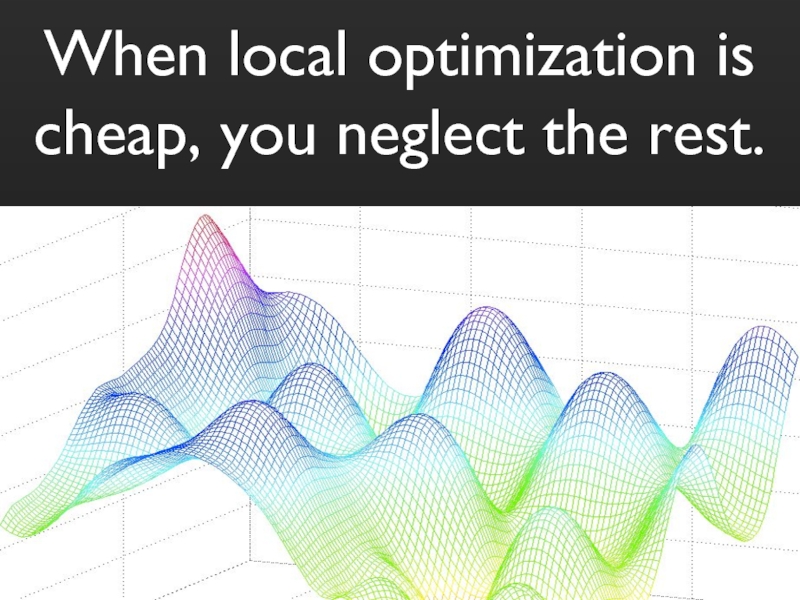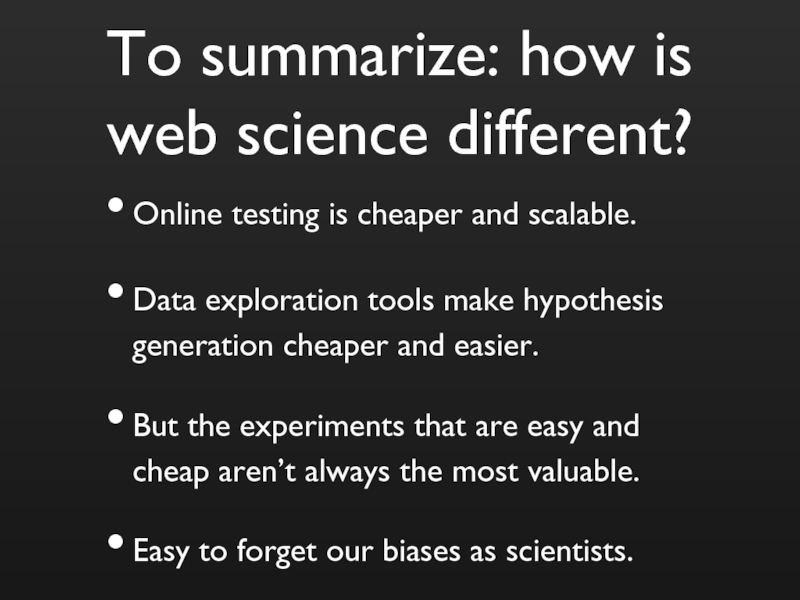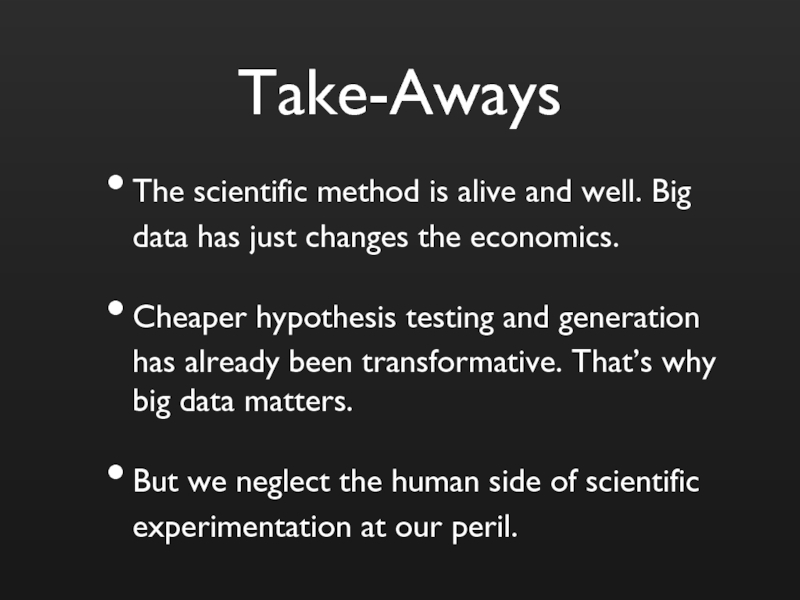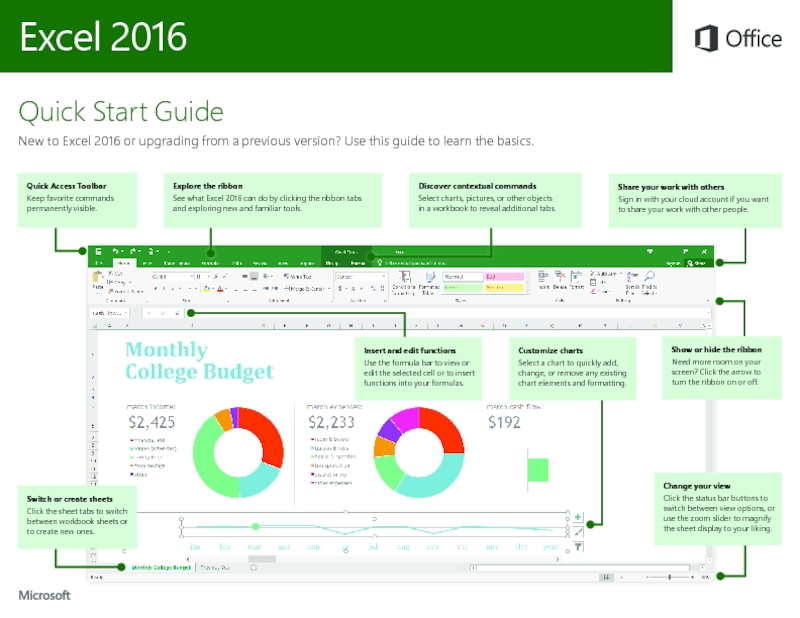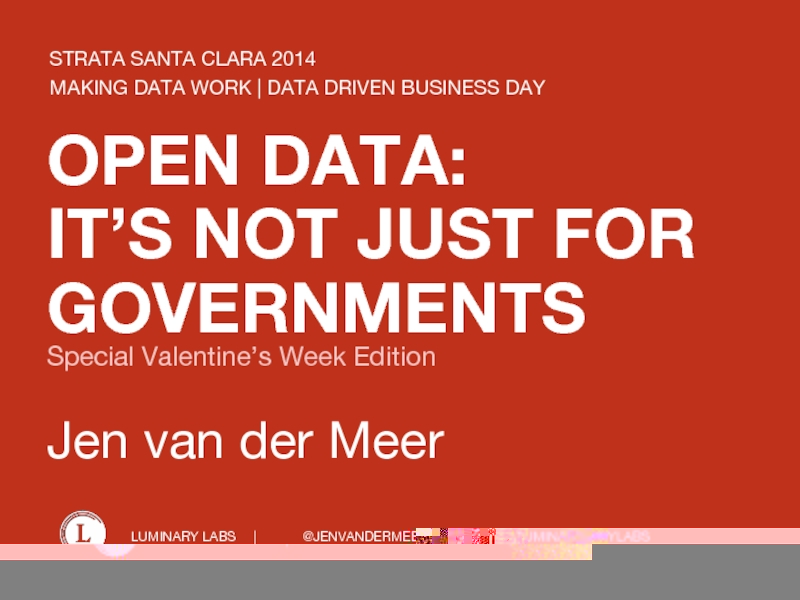- Главная
- Разное
- Дизайн
- Бизнес и предпринимательство
- Аналитика
- Образование
- Развлечения
- Красота и здоровье
- Финансы
- Государство
- Путешествия
- Спорт
- Недвижимость
- Армия
- Графика
- Культурология
- Еда и кулинария
- Лингвистика
- Английский язык
- Астрономия
- Алгебра
- Биология
- География
- Детские презентации
- Информатика
- История
- Литература
- Маркетинг
- Математика
- Медицина
- Менеджмент
- Музыка
- МХК
- Немецкий язык
- ОБЖ
- Обществознание
- Окружающий мир
- Педагогика
- Русский язык
- Технология
- Физика
- Философия
- Химия
- Шаблоны, картинки для презентаций
- Экология
- Экономика
- Юриспруденция
Web Science: How is it different? Daniel Tunkelang Head of Query Understanding презентация
Содержание
- 1. Web Science: How is it different? Daniel Tunkelang Head of Query Understanding
- 3. tl;dr: The scientific method is alive
- 4. How have the web and big data
- 5. “You have to kiss a lot of
- 6. Web Science = faster, cheaper experiments.
- 7. “The cost of experimentation is now the
- 8. Web Science = more experiments, less analysis?
- 9. “with massive data, this approach to science
- 10. ?
- 11. No.
- 12. Let’s rewind.
- 13. What makes it science?
- 14. Hypothesis
- 15. Model
- 16. Test
- 17. The scientific method still works today. What’s changed is the economics.
- 18. Scientific Method 1747
- 19. Scientific Method Today
- 20. It’s the economy, science. Yesterday Experiments are
- 21. What about Web Science?
- 22. A/B testing: everybody’s doing it.
- 23. Google: 20k search experiments per year
- 24. hypotheses
- 25. The Myth of Insight
- 26. Scientists gain insight by staring at data.
- 27. Big data tools improve data exploration.
- 28. In hypothesis generation, quantity trumps quality.
- 29. Except when it doesn’t.
- 31. Easier to analyze data than research humans.
- 32. But we pay the price. Example: search
- 33. When local optimization is cheap, you neglect the rest.
- 34. To summarize: how is web science different?
- 35. Take-Aways The scientific method is alive and
- 36. Daniel Tunkelang dtunkelang@linkedin.com https://linkedin.com/in/dtunkelang
Слайд 5“You have to kiss a lot of frogs to find one
prince. So how can you find your prince faster? By finding more frogs and kissing them faster and faster.”
Mike Moran
Do It Wrong Quickly: How the Web Changes the Old Marketing Rules, 2007
Cited by Kohavi in Online Controlled Experiments at Large Scale, 2013
Слайд 7“The cost of experimentation is now the same or less than
the cost of analysis. You can get more value…by doing a quick experiment than from doing a sophisticated analysis.”
Michael Schrage
Value-Creation, Experiments, and Why IT Does Matter, 2010
Слайд 9“with massive data, this approach to science — hypothesize, model, test
— is becoming obsolete… Petabytes allow us to say: "Correlation is enough." We can stop looking for models…analyze the data without hypotheses…throw the numbers into the biggest computing clusters the world…and let…algorithms find patterns where science cannot.”
Chris Anderson
The End of Theory, 2008
Слайд 20It’s the economy, science.
Yesterday
Experiments are expensive,
choose hypotheses wisely.
Today
Experiments are cheap,
do as
many as you can!
Слайд 32But we pay the price.
Example: search engine improvements in batch evaluations
don’t always predict real user benefits.
[Hersh et al, 2000] Do Batch and User Evaluations Give the Same Results?
[Turpin & Hersh, 2001] Why Batch and User Evaluations do not Give the Same Results
[Turpin, Scholer, 2006] User Performance versus Precision Measures for Simple
Search Tasks
But also see…
[Smucker & Jethani, 2010] Human Performance and Retrieval Precision Revisited
But also see…
[Smucker & Jethani, 2010] Human Performance and Retrieval Precision Revisited
Слайд 34To summarize: how is web science different?
Online testing is cheaper and
scalable.
Data exploration tools make hypothesis generation cheaper and easier.
But the experiments that are easy and cheap aren’t always the most valuable.
Easy to forget our biases as scientists.
Data exploration tools make hypothesis generation cheaper and easier.
But the experiments that are easy and cheap aren’t always the most valuable.
Easy to forget our biases as scientists.
Слайд 35Take-Aways
The scientific method is alive and well. Big data has just
changes the economics.
Cheaper hypothesis testing and generation has already been transformative. That’s why big data matters.
But we neglect the human side of scientific experimentation at our peril.
Cheaper hypothesis testing and generation has already been transformative. That’s why big data matters.
But we neglect the human side of scientific experimentation at our peril.
